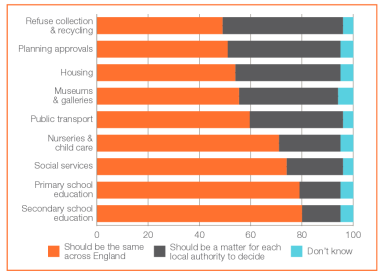Chris Game
One of Birmingham’s most enterprising theatres is one of its smallest, the Old Joint Stock – a studio theatre above a pub that was once the Birmingham Joint Stock Bank – which found itself an early and particularly unfortunate Covid-19 victim. For the Government’s March 16th announcement of the effective closure of all theatres came literally on the eve of the OJS’s five-day run of The White Plague, the scheduled second leg of a European tour, following a successful launch at Greenwich Theatre the previous week.
The title derives from an IRA-era sci-fi novel by Frank Herbert, whose vengeful Irish molecular biologist creates a particularly discriminating (in both senses) plague, in that, while men are the carriers, it kills only women. The feature of this Ferodo Bridges theatre production, though, is that audience members are given masks or goggles that ‘white out’ their vision, thereby supposedly immersing them in the world of the blinded victims.
I was sorry to miss such a topical example of immersive theatre, but found some consolation in its ill-timed cancellation providing a rather classier example of situational irony than the standard fire station burning down, or the Facebook complaint about how useless Facebook is.
Which was neat, as the same week offered a further, and more democratically pertinent, Covid-19 example of situational irony in France’s municipal elections – partly in the results, but mainly in their happening at all.
President Macron faced a dilemma. French municipal and mayoral elections happen only every six years. This year’s, therefore, would be the first since he became President in 2017, thanks rather amazingly to his newly created LREM party, La République En Marche!, winning a substantial majority in the National Assembly elections.
This, therefore, should have been Macron’s big chance to establish a grassroots power base. In Paris City Hall, Socialist Mayor Anne Hidalgo, notwithstanding a radical manifesto – including a referendum on Airbnb, plans for a “100 percent bicycle” city centre, and a municipal police force comprising 50% women – looked vulnerable, and there were early visions of scores of LREM mayors and thousands of councillors across the country.
That’s right, thousands – this is France, with over 900,000 candidates contesting seats in over 35,000 villages, towns and cities, though excluding this time, rather sadly, the 757 British citizens currently serving as municipal councillors – which, incidentally, is nearly 300 more than in all seven West Midlands metropolitan boroughs combined.
Macron himself, however, was at less than peak popularity, following months of protests and strikes – by the Gilets Jaunes (Yellow Vests) movement against rising fuel taxes, then by rail and health care workers, teachers and others against under-funding and pension reforms. Added to which, LREM’s Paris mayoral hopeful had had to abandon his candidacy in a sex video scandal – on Valentine’s Day!
And now France was showing the second highest number of confirmed Covid-19 cases in Europe. Yet, having himself just shut down restaurants, museums, big sporting events, most stores, and the whole education system, Macron announced that the coming Sunday’s first round of the two-round municipal elections would go ahead – with strict sanitary conditions imposed, naturally.
The situational irony: the one man who could have saved his very personal party from a probable serious electoral thrashing, by doing the apparently responsible, expected thing and without any loss of face, chose not to.
Having merely a global citizen’s concern with French public health, I was actually quite pleased. Partly because French local elections are always fun to write about, but especially following the outcome of our own head of government’s Flip-Flop Friday.
In the morning of, yes, unlucky Friday 13th, Number 10 insisted – “driven by the experts”, of course – that May 7th’s local, mayoral, and Police & Crime Commissioner elections would go ahead, in defiance of the Electoral Commission’s postponement recommendation and Electoral Administrators’ warning of possibly insufficient polling station staff.
But then, literally within hours, all elections were off – and not, as proposed by the Electoral Commission, until the autumn, but for a year.
What makes French local elections fun? Well, not least – and making Macron’s go-ahead seem even more extraordinary than Johnson’s dithering – because there are just so many of them and they really are so genuinely local.
England’s local government currently comprises 341 principal councils, of which just Rutland, fractionally, has a population of under 40,000. By contrast, over 98% of France’s 35,000+ communes have under 20,000, and over half under 500.
Voting – in larger communes at least – is by proportional representation, potentially over two rounds, and mainly through party lists, which Parity Laws decree must comprise as many women as men, listed alternately. Mayors are indirectly elected: voters electing the council, the council then electing the mayor.
Most impressive attribute of French local elections, though, is that voters like them, and like voting in them, much more than in National Assembly elections. Evidence Exhibit 1: in reporting turnout in even local elections, the French way is to cite not the turnout percentage but ‘Abstentions’ – and then to worry when in 2014 the 36.45% abstentions (they’re also very precise) constituted “a record high” .
Exhibit 2: my favourite English language election preview, bemoaning how coronavirus was “eclipsing the elections in national conversation”, because “87% of the French people are discussing the coronavirus, while ONLY 52% are discussing the upcoming elections” (my emphasis). The last time over half an English electorate were caught discussing upcoming local elections being …?
Nevertheless, there clearly was concern that, even with voters queuing three feet apart, their own pens poised to sign the register, and voting machines wiped with hydro-alcoholic gel, polling stations were almost custom-made germ-spreading venues, particularly for older people.
Still, however, they recorded an estimated abstention rate of “up to 56%”, and a turnout therefore of around 45% – immediately seized on by the media as an “historic low”. In context, though, the last time turnout in our metropolitan district elections, for example, touched 45% in a non-General Election year was 1990 – poll tax year. The recent average is 33%.
Macron’s decision was surprising, avoidable, predictably politically costly, and – given the second round’s almost immediate cancellation – probably wrong. It was not, though, without its integrity.






